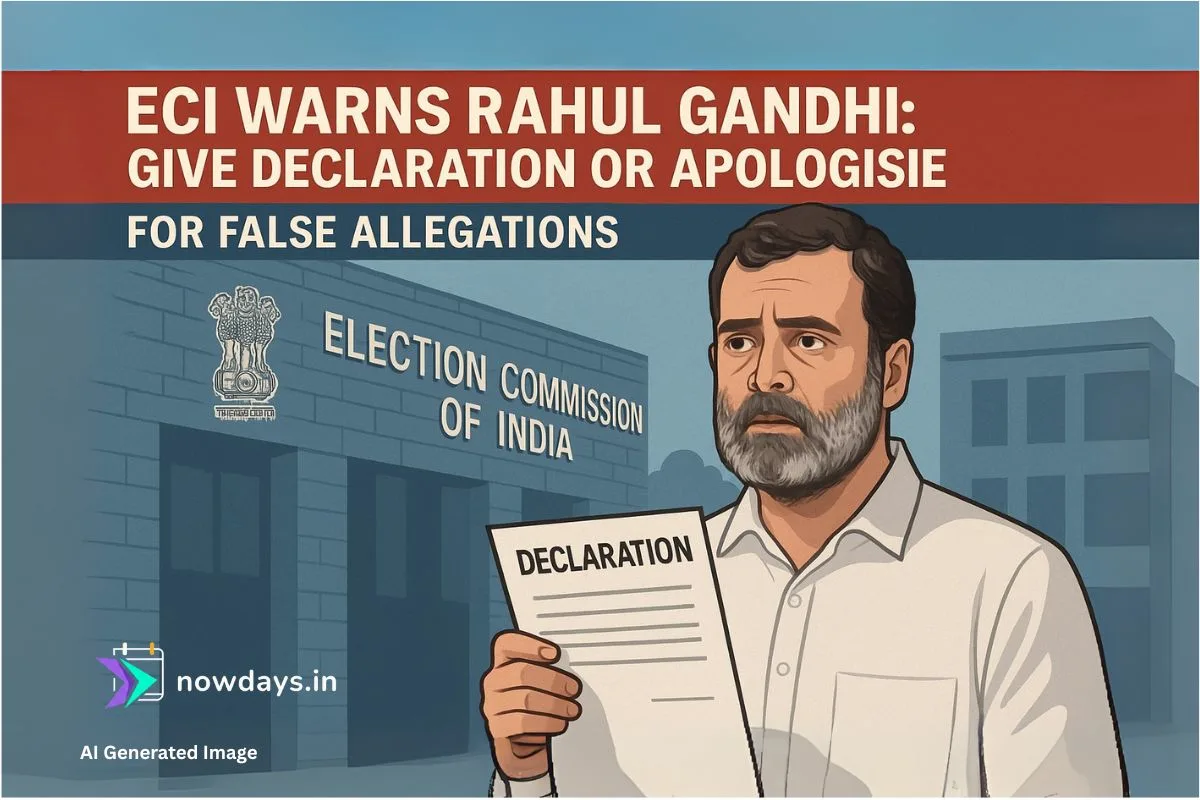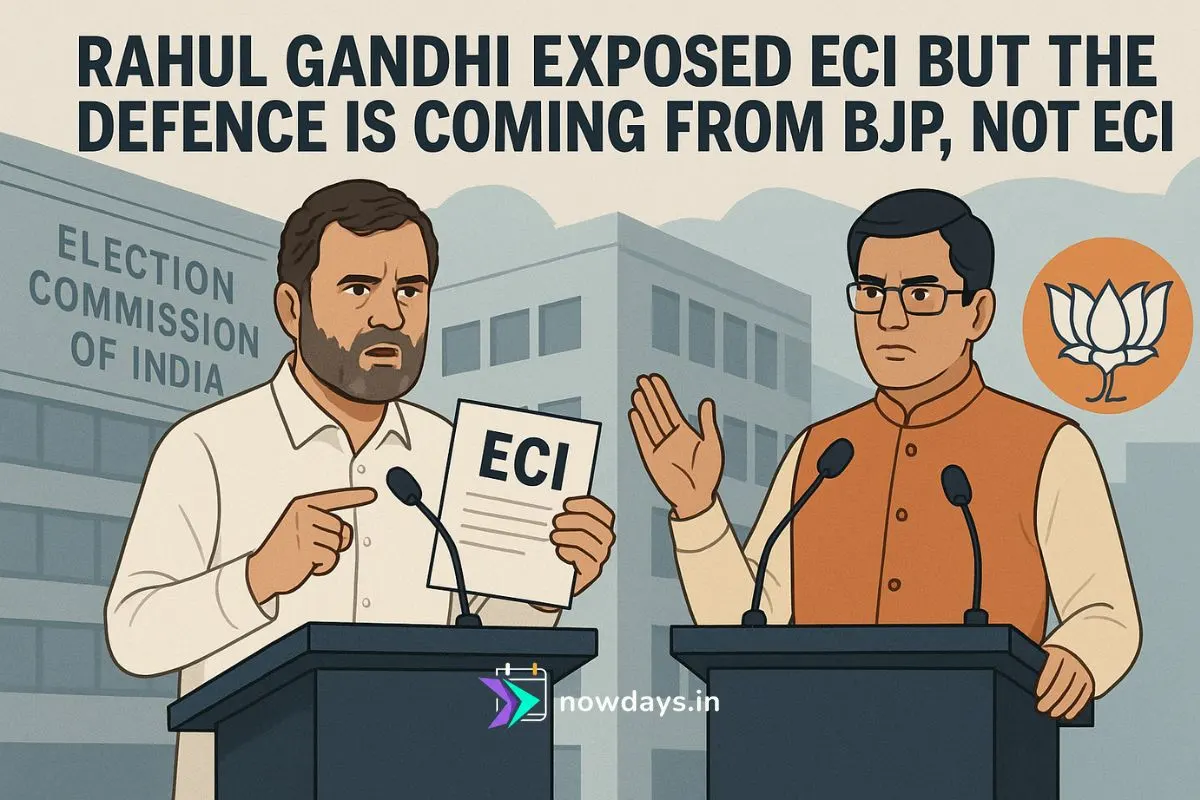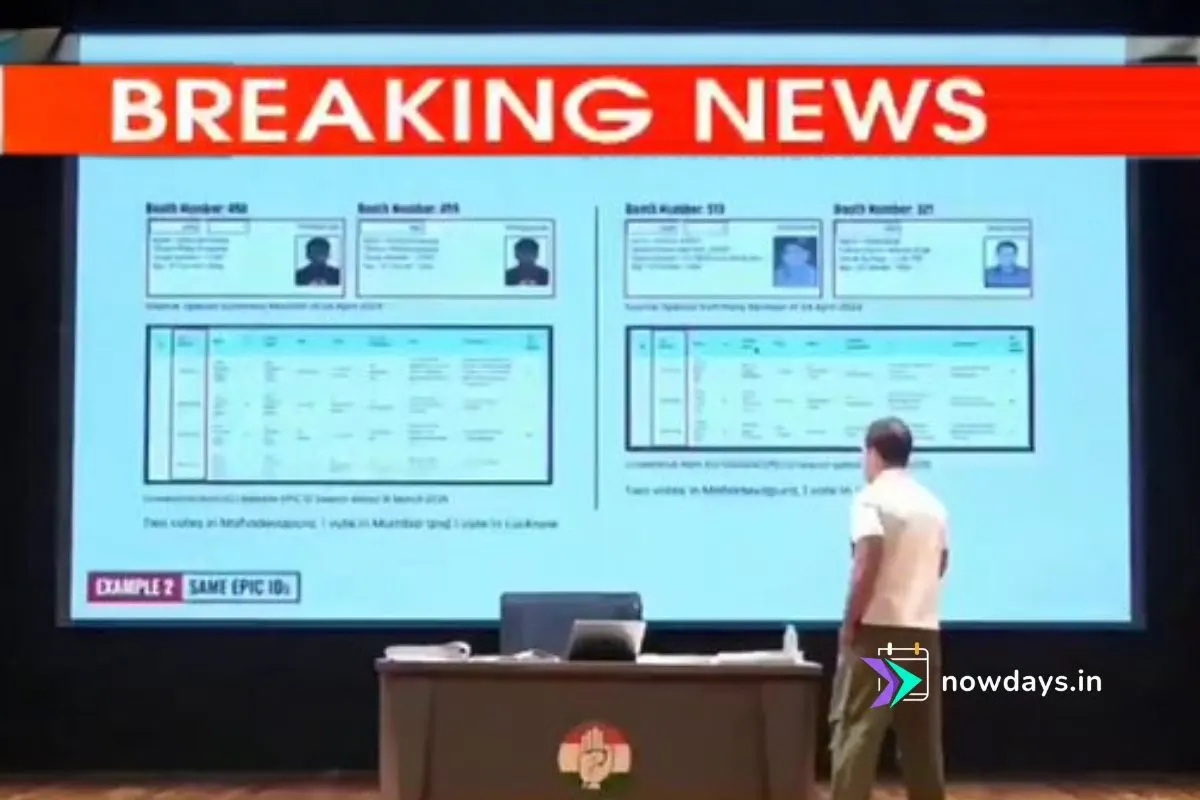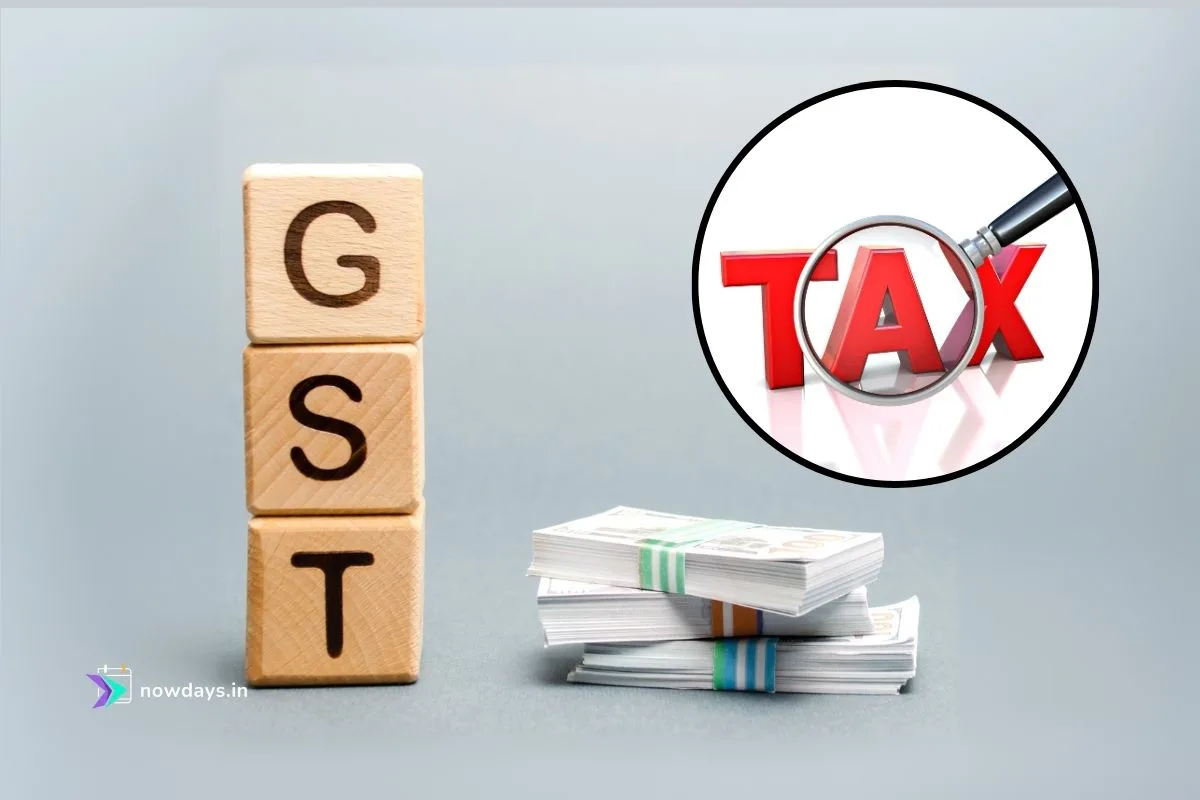The Election Commission of India (ECI) has issued a sharp ultimatum to Congress leader Rahul Gandhi: either submit a signed declaration under oath substantiating his claims of “vote theft” or apologise to the nation for making “false” and “misleading” allegations, escalating a confrontation over electoral integrity into a high-stakes legal and political battle.
The warning follows Gandhi’s press conference and Bengaluru rally where he accused the poll body of colluding to manipulate voter rolls and erasing evidence, while citing a case study of alleged 100,250 fake or irregular votes in the Mahadevapura Assembly segment of Bengaluru Central during the 2024 Lok Sabha election.
What Triggered the ECI’s Ultimatum
Gandhi alleged duplicate voters, fake addresses, and bulk registrations at single locations, and questioned the ECI’s refusal to share machine‑readable electoral rolls and to preserve CCTV footage beyond limited retention windows, framing five questions that he said the Commission must answer publicly.
Election Commission of India has once again said sternly: "Rahul Gandhi should either give a Declaration as per rules or apologise to the country for his false allegations." pic.twitter.com/obOrHMMGiI
— ANI (@ANI) August 9, 2025
The ECI responded through a multi-part rebuttal under the #ECIFactCheck banner, calling the claims “misleading,” and demanded that Gandhi file a declaration on oath with named electors as required by Rule 20(3)(b) of the Registration of Electors Rules, 1960, or withdraw and apologise. Chief Electoral Officers (CEOs) of Karnataka, Maharashtra, and Haryana wrote separately to Gandhi seeking a sworn statement and detailed lists to initiate proceedings, reinforcing that due process requires specificity and attestation.
ECI’s Legal Ground and Process Argument
Citing past Supreme Court precedent, the ECI reiterated that the demand for machine‑readable voter rolls was previously rejected, and that challenges must proceed through election petitions or formal objections rather than media assertions, aligning with established statutory pathways. The Commission argued that CCTV/webcast footage is retained when a legal petition is filed and that indefinite preservation absent litigation creates privacy risks and imposes impractical review burdens, noting that footage from 100,000 polling stations would take “1 lakh days” to watch with no legal outcome if not tied to a case record.
Vote Chori सिर्फ़ एक चुनावी घोटाला नहीं, ये संविधान और लोकतंत्र के साथ किया गया बड़ा धोखा है।
— Rahul Gandhi (@RahulGandhi) August 8, 2025
देश के गुनहगार सुन लें – वक़्त बदलेगा, सज़ा ज़रूर मिलेगी। pic.twitter.com/tR7wh589fN
It emphasized that many of the Congress’s claims had not been advanced through signed complaints in the past and pointed to documented replies on its website to earlier letters routed via party advocates rather than Gandhi himself, urging direct, attested submissions for accountability.
Rahul Gandhi’s Counter and Political Pushback
Gandhi dismissed the affidavit demand by saying his public statements follow his parliamentary oath and insisted the ECI answer his five transparency questions instead of “threatening” the opposition, doubling down at the Vote Adhikar rally in Bengaluru.
He maintained that the Congress’s internal analysis flagged systematic anomalies, asserting “vote chori” in Mahadevapura that allegedly impacted the Bengaluru Central outcome, and pressed for digital, analyzable voter lists to enable citizen audits. Ground checks by media outlets probed some cited anomalies—such as dozens of voters registered at small premises—illustrating the stakes of verification while also underscoring the need for case‑by‑case documentation to move beyond anecdotes into admissible evidence.
Expert Lens: Transparency Demands vs Procedural Rigor
Election law analysts note that Gandhi’s call for machine‑readable rolls, standardized data access, and clearer retention norms reflects modern transparency ideals, but the ECI’s insistence on sworn, particularized complaints is legally orthodox and necessary to trigger statutory remedies. Procedural scholars highlight that a signed declaration naming specific electors enables due process—notice, inquiry, and potential roll rectification—whereas broad, unsworn charges risk politicizing oversight without furnishing actionable leads. Policy experts argue that proactive open‑data practices by the ECI could reduce suspicion cycles, but caution that privacy, misuse risks, and court precedents constrain blanket digitization of personally identifiable voter information absent legislative guardrails.
What the Ultimatum Means Practically
The ECI’s stance narrows Gandhi’s options to two tracks: file a declaration with named entries under Rule 20(3)(b) so CEOs can initiate proceedings, or retract and apologise—failure to do either could invite political costs and potential legal exposure if allegations are deemed baseless under applicable statutes, officials suggested. Karnataka’s CEO also asked the state Congress leadership to submit documentary specifics, indicating that state‑level verification could proceed if furnished with attested lists linked to addresses and EPIC numbers as per the rules. Separately, the ECI highlighted that the Congress-led Karnataka government had itself relied on electoral rolls for policy exercises, a point deployed to contest the narrative of wholesale roll fraud while not precluding targeted corrections where proven.
The Road Ahead
- Legal filings and affidavits: If Gandhi submits an oath‑based declaration with names and addresses, CEOs can begin statutory processes to verify entries and preserve relevant records, potentially producing a test case that sets evidentiary standards for future disputes.
- Data policy debate: Expect renewed calls for machine‑readable voter rolls with privacy safeguards and clearer CCTV retention triggers tied to potential litigation windows, balancing openness with jurisprudence and capacity constraints.
- Political messaging: While the ECI’s official rebuttals continue, parties are likely to frame the confrontation to their advantage, making the quality and specificity of documentary proof central to public credibility and institutional trust.
For now, the ECI’s message is unambiguous: substantiate under oath with verifiable particulars or apologise—shifting the contest from rallies and social media to affidavits and statutory procedure, where the burden of proof and the path to remedy are clearly defined.










